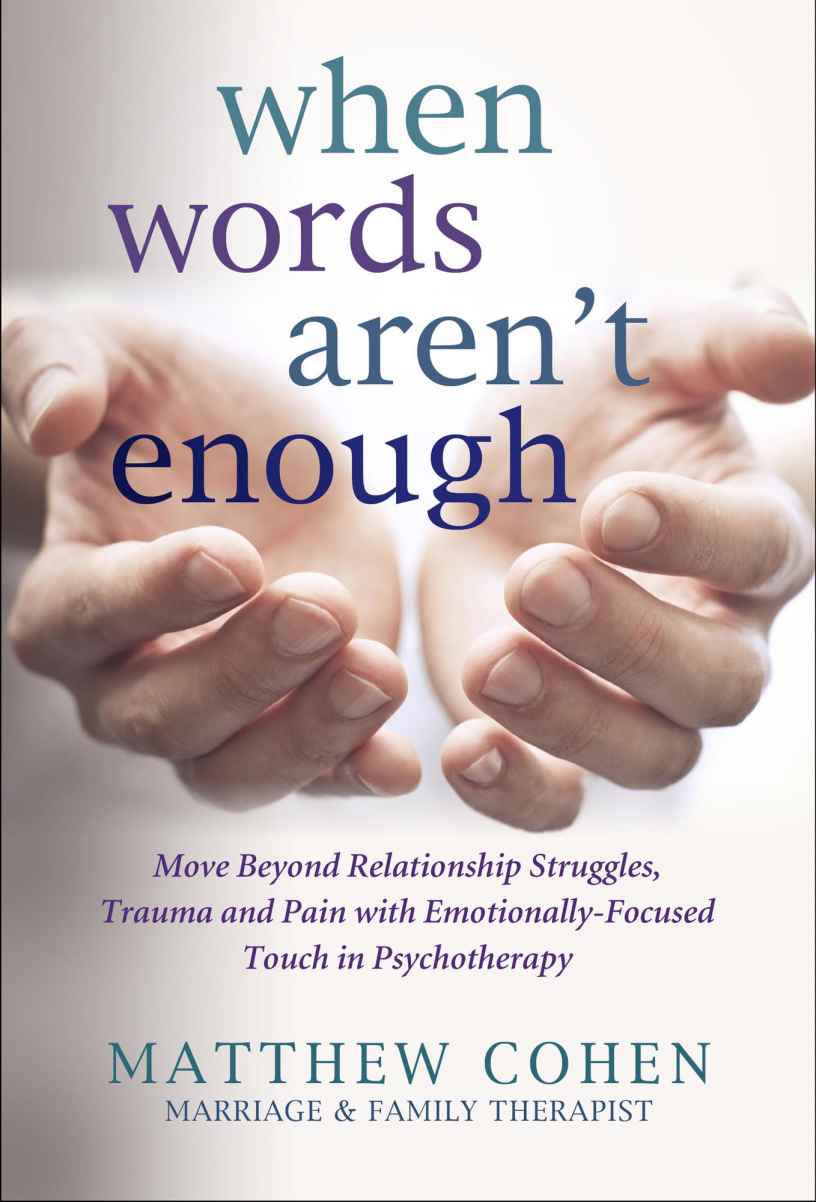We human beings are more than our minds, thoughts and feelings. Our bodies are repositories for our pasts; both pain and pleasure reside as cellular memory. For some, talk therapy is sufficient to work out challenges and traumas. For others, a mutlti-modal approach that includes somatic therapy or body psychotherapy is even more effective. Enter the world of Matthew Cohen, who refers to himself as a ‘somatic educator’; in simple terms, someone whose work is in the second category. A career psychotherapist whose work spans several decades, Cohen is also the author of When Words Aren’t Enough.
I initially met him when he founded The Body Synergy Institute in the 1980’s and have watched his career blossom and have heard stories of healing that has taken place in the lives of those who have worked with him. A few of his clients graciously allowed for their stories to be shared in this book that is both for the professional who wants to learn more about integrating these concepts into their practice and the lay person who desires to explore more about what makes them tick.
Cohen spreads out a foundation by speaking about professional boundaries, since some of this work involves close physical (but not sexual) contact. He also delves into the idea that spirituality and psychotherapy need not exist as separate realms and that combined, can enhance the recovery process. His own spiritual journey fed his therapeutic strategies as is discussed early on.
Transcripts of the sessions he did with Jeff and Emily, a couple who unlike many who enter into therapy, were not in major crisis mode, but wanted to enhance what they had already created for themselves, with Cohen as their trusted guide, are placed throughout the first section. Each had physical challenges, such as migraines and back pain that are addressed in both verbal and embodied form. They came to recognize the roots of their relational friction that showed up from time to time.
Randall is an abuse survivor who experienced many years of the trauma of sexual assault perpetrated my several family members. With him, Cohen used what he calls Emotionally Focused Touch. Many who have PTSD, tend to dissociate and even feel as if they have left their bodies. This is a survival mechanism that enables them to make it through the horrors they endured. He was diagnosed with DID (Dissociative Identity Disorder that used to be called Multiple Personality Disorder) In his sessions, Randall came to find that non-sexual, professionally offered touch was not only safe, but body and soul nourishing. He literally came back into his body and felt present in it.
Gordon arrived on Cohen’s doorstep with a rotator cuff injury. He is an attorney who once upon a time had aspirations of becoming a Jesuit priest, which made it easier for Cohen to make inroads with him, because of his own deep spirituality, even as he had approached it from a different angle. Some of his process involved integrating his relationship with his controlling, alcoholic father whose expectations for his son felt restrictive, a portion of which was symbolized by the ways in which Gordon viewed his journey, not giving himself credit for how far he had come.
At the end of the book, Cohen reviews and summarizes the progress these four courageous souls have made. He has a high degree of respect for them that is evident in this book that in all ways ‘touches on’ the resilience of the human spirit.


